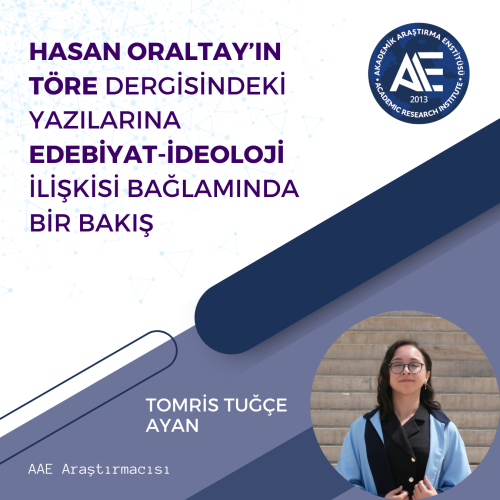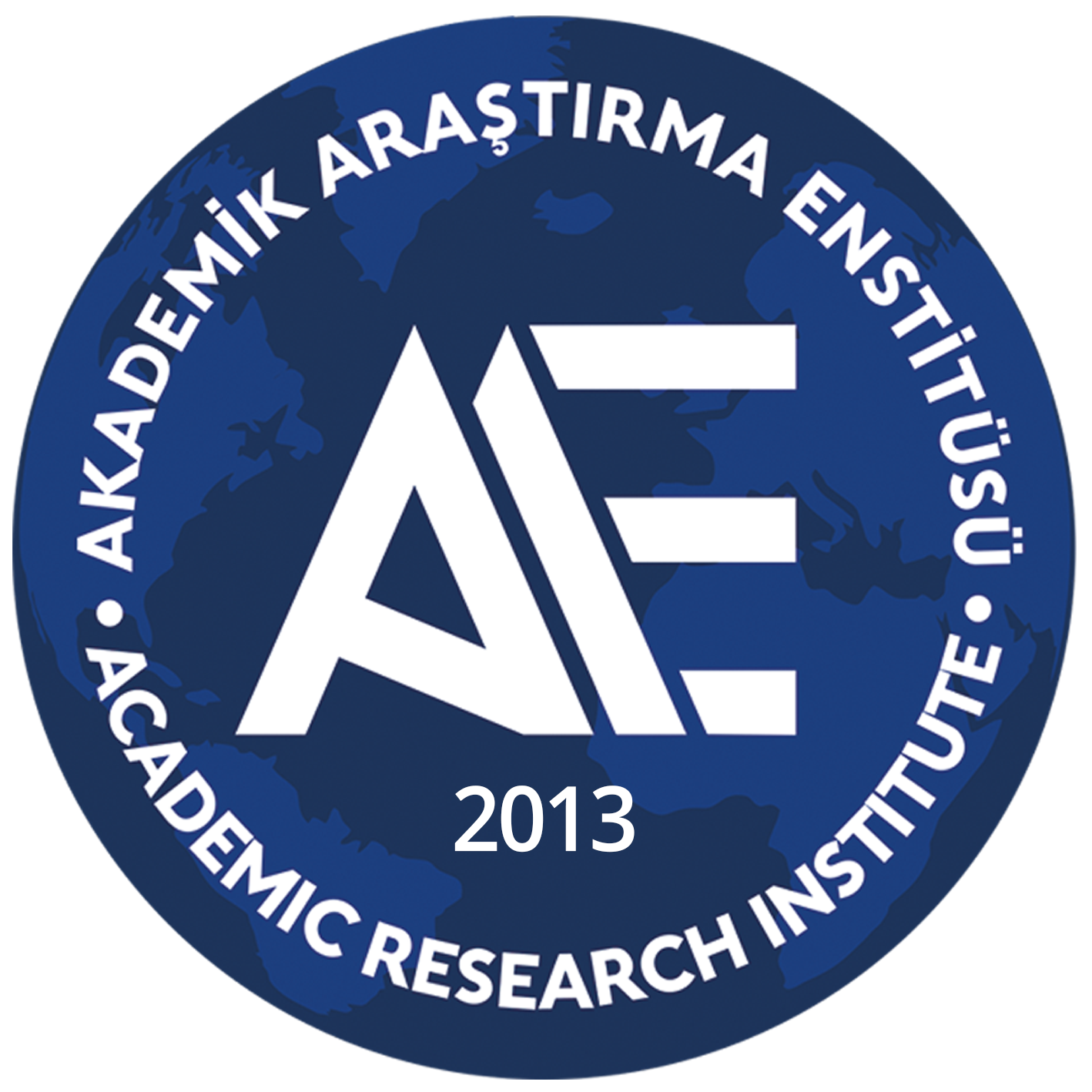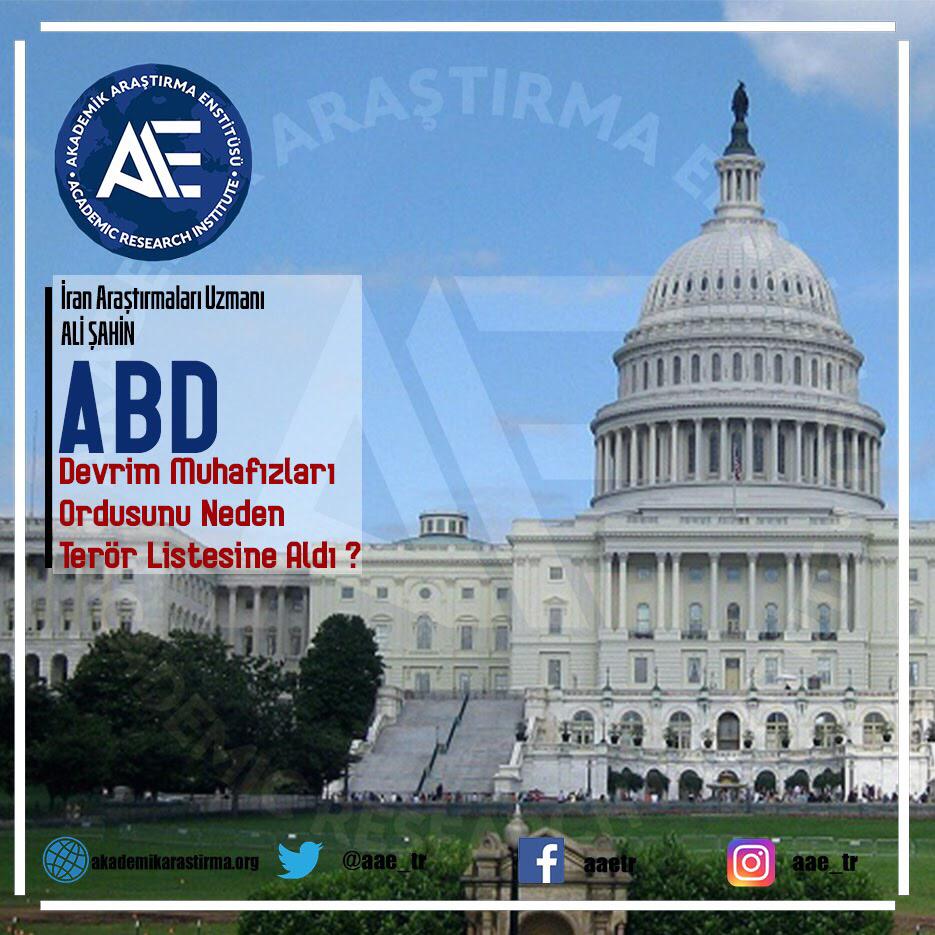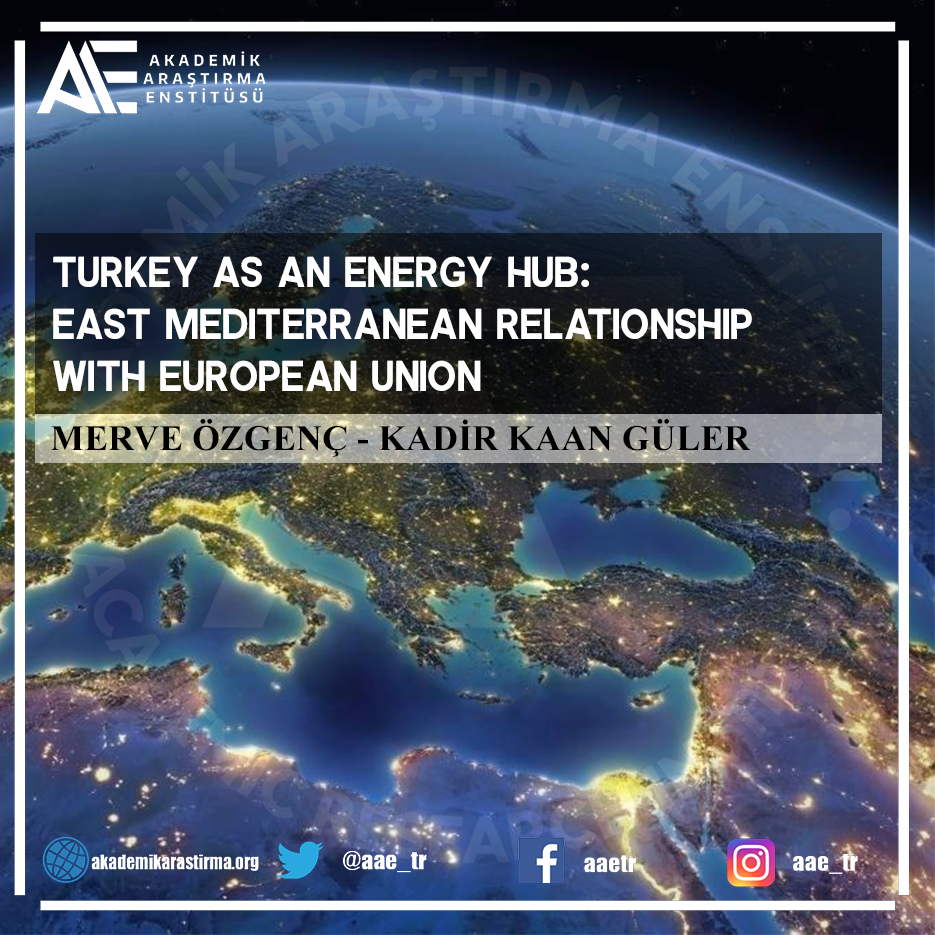
Turkey as an Energy Hub: East Mediterranean Relationship With European Union
1. Introduction
Geography has the most important effect on the policies of states. Every state needs to have national security strategy and that is related with its national interest, borders, security and power. It is based on the geopolitics. In order to become a powerful country, a government has to pursue an energy policy. Energy policy has been playing a big leading role in the international system since the middle of the 19th century. It was so new to explore which country has petrol, even in this position it shaped the system on establish of 21 century. The energy still continues to give potential power and give international position to the states in the system. The difference is from the past, there are many energy categories and this is force to states for have multiple energy policy and led them.
In this case, the study focuses on the Eastern Mediterranean area from the view point of natural resources. The research questions are: Why is the Eastern Mediterranean so important? What happened politically before in the region? What is the exclusive economic zone and how is it effected? What are the tensions between states? How does Turkey focus on the case and what are the advantages and disadvantages for Turkey and the EU relationship on the region?
Therefore make it clear, chapters explain step by step: the effect of geopolitics, exploration of energy in the Eastern Mediterranean, Turkey’s position on the Eastern Mediterranean and the last chapter will discuss, what Turkey needs to do and how it can affect the relationship with the EU.
2. Effect of Geopolitics
Geopolitics has big attention since the 20th century. It has briefly emerged by geography and politics. Countries have territory and territory has some special characteristics. Such as energy, sea side, mine, fertile land. States need to survive, for that they must follow good politics on the territory. Otherwise it can lose the area by enemies. During the World Wars I and II, geopolitics was so important, that it shaped the whole foreign policy. The system was focusing on the territory, interest, military power, and locational enemy like neighbor states. It was all related with the realism and it was called traditional geopolitics.
Before the Cold War, there was a bipolar system of nuclear power dominated by the United States and Soviet Union, but after the collapse of the Eastern bloc, this system turned to the superpower system by the US. Then traditional geopolitics became weak and critical geopolitics is emerged and got more attention. For critical geopolitics territory is important but at the same time internet, cyberwar, technology, religion, culture and such social factors are important too. Geography created the culture and culture created the society. Mirja Schröder and Wolfgang Wessels separate the case well: “Criticizing the classical static view on geography due to given physical attributes, critical geopolitics treats geography as a discourse, suggesting that geographical assumptions are culturally constructed and politically sustained.” (Wessels and Schröder, 2017, p. 27).
We live in the 21st century and develop then before. We have more comfortable and technologic life. All of things work with energy. Electric, water, gas, oil, coal, nuclear and other energies are useful. Therefore European Union (EU) give an important role to the energy policy and emphasize it: “although the European Commission recognized that member state energy policies reflect particular national preferences, it admonishes that, in a world of global interdependence, energy policy necessarily has a European dimension.” (Tekin and Williams, 2011, p.15). There are three elements for a good European energy policy. First one is sustainability. Natural resources are limited and we have to find to use other sustainability resources which is more effective at the same time. Second, competitiveness and marketing are the other factors. Third, security issues are also important. (Tekin and Williams, 2011, p.17). Every member state of the EU needs to have energy and while it get to Europe, members have to provide conditions for research and development. (EU Commission, 2014). Separately from the EU, energy policy is important, to have geopolitical and geostrategic power, it has big effect for serving the self-interest, every member state wants to have a good energy level. So, the EU is interested in the case, the area which has energy is considerable. In this case the study focusses on the EM.
3. Exploration of Energy in the Eastern Mediterranean
Mediterranean area is in the middle of different continents on Asia, Europe and Africa. Throughout the history, it provides to connect other regions easily for sea trade, war, oil and gas. It is way to reach other countries. For that, most states want to have this region to affect to others. The region helps to control the Middle East, North Africa and it prevent by West Russia’s move to South (Yaycı 2012, 6). There are many countries which have the side of Mediterranean and it is hard to share the same area. The countries are: Turkey, Italy, Greece, France, Malta, Spain, Serbia, Croatia, Montenegro, Slovenia, Macedonia, Bosnia and Herzegovina, Albania, San Marino, Lebanon, the Turkish Republic of Northern Cyprus (TRNC), South Greek Cyprus Administration (SGCA), Syria, Egypt, Tunisian, Algeria and Morocco. All this countries have to focus on the Mediterranean strategically, because of power, self-interests and survival in the area. In this case, the study will focus on the Eastern Mediterranean countries like: Turkey, Syria, Egypt, Lebanon, TRNC, SGCA, Israel and Morocco.
Energy exploration has started since 2000 in Levant Basin of the EM and there are natural gas reserves in the area. Israel, Egypt, Italy, SGCA, Lebanon have potential for natural gas production (CRS, 2016). Major problems are also started. For instance Exclusive Economic Zone (EEZ), bilateral agreements, and search-production permit areas (Kütükçü and Kaya 2016, 2). According to the law of the sea agreed in the United Nations (UN) Convention on the Law of the Sea 10 December 1982 states try to solve problems by that . EEZ is according to the UN: “…is an area beyond and adjacent to the territorial sea, subject to the specific legal regime established in this Part, under which the rights and jurisdiction of the coastal State and the rights and freedoms of other states are governed…” (UN 1982, 37). So, the states have right to exploration, product and sell in the EEZ. According to UN agreement, every state can announce own EEZ, show on the map and need to send a copy to the UN. Some countries has already announced for Eastern Mediterranean until today. Referring to the report of UN the countries are: SGCA, Egypt, Israel, Morocco and Syrian Arab Republic (UN, 2011).
Some countries have been work on the area. Italy has an effective role on Egypt’s resources on Zohr field: “Zohr field is possibly the largest gas field in the world, with an estimated 30 trillion cubic feet of natural gas. The development of the Zohr gas field expected to produce 20-30 bcm annually for 20 years…” (Dimou 2017, 96). It works to find energy by ENI Company and instead of Egypt, Italy is trying to negotiate with other countries (Ellinas et al, 2016, p.5). Israel has support of the US and work together. “The discovery of the Tamar field (200 Bcm) in 2009 and the Leviathan field (470-621 Bcm) in 2010 opened new perspectives for the little consuming country (9.7 Bcm in 2016). In the following years, the ENI discovered in 2015 the Zohr gas field (850 Bcm) and Cyprus issued permits for drilling in its EEZ, leading to the discovery of the Aphrodite gas field (200 Bcm) in 2011.” (Mazzucchi 2018, 3).
4. Turkey’s Position on the Eastern Mediterranean
Turkey has been announced the Turkey’s EEZ in Black Sea but it didn’t announce yet in Aegean Sea and Mediterranean it related with islands. Before going to the natural gas problem it is good to understand sea problems between Turkey and Greece. The Countries have problems on the islands. According to Republic of Turkey Ministry of Foreign Affairs, there are 5 categories. Firstly, the UN laws give the permission to the states as a border territorial waters, 12 mile. Turkey and Greece use it 6 miles because their position is opposite and there are common areas and Greece insist for to have 12 miles without agreement with Turkey. Secondly, it was forbidden to have weapon-arms in the islands by Lozan and Paris agreements but Greece doesn’t respect to this rule. Third one is geographic superiority. Fourth, Greece use 6 miles territory waters widening and it is also airspace measure according to international law. But the country claims to have 10 miles airspace. It doesn’t make any sense for Turkey. The last problem is about search and rescue. Both country has to agree on the common regions, but Greece follow nationalistic approach and it is prevent to cooperation (Ministry of Foreign Affairs, 2011).
Greece describes the own continental shelf using over Crete, Karpathos, Rhodes and Meis islands (Yalım, 2018). It means Turkey has really minimum place and it can’t take any decision. This situation is not legal of geographically on the international law. Turkey has a big part on the area and it is superior condition compared to Greece. At the same time, these islands are closer to Turkey than Greece and it needs special conditions. The other factors are given full swing and proportion of the islands (Kütükçü and Kaya 2016, 88). These substances give priority to economy, the situation mustn’t block to other state’s competency. If Greece would have the area, it will be block of Turkey’s economic competency. When considering all conditions the case is a problem and both side need to agree.
Turkey and Greece also have problem case of energy on the Cyprus. SGCA announced EEZ and determined territory and had an agreement one by one with Egypt, Lebanon and Israel (Yaycı 2012, 17). Greece did this agreements without Turkey’s perspective and try to push Turkey ineffective role. Additionally, SGCA sold the 13 area for searching petrol to the US. Five of them are banned to Turkey’s area and eight of them are relate with TRNC. Especially 12. area is the most confuse one (Kütükçü and Kaya 2016, 90). Data has been show, Greece wants to keep Turkey out of the case. Turkey’s problem is about recognition of TRNC, the region has not recognition in internationally and it is give damage to Turkey because can’t take decision especially in the energy case. For that SGCA is recognition instead of TRNC. Turkey and TRNC had an agreement in 2011 and started to search petrol (Kütükçü and Kaya 2016, 92). It is a kind of proof that Turkey doesn’t want to stay out of the case but it hasn’t taken decision in the international system. Research cost also too expensive and conditions are force to find a partner to share cost. Other countries found it already but TRNC can’t find any partnership because of recognition problem and this is pushed to Turkey take a passive role.
Another problem is terrorism in Turkey. Terrorism is started since establish of PKK terrorist organization in 1978. The PKK wants to establish a new Kurdish state which is include some part of Turkey, Iraq, Syria and Iran. After the Syrian Civil War in 2011, PKK take the active role and tried to enlargement this is also relate with the energy way. Turkey have three achieve operations for prevent it in Syria. Fırat Operation, Zeytin Dalı Operation and the last one is continue. All is aimed to the territorial integrity-protect of Turkey. However negative point is, Turkey spent much more attention to Syria and could not focus to the EM. Additionally YPG terror organization while think of the Kurdish state, wants to use Syria’s and Iraq’s energy resources and wants to transport it by using own territory to the others and aim is push to Turkey bypass position. This is another serious problem for Turkey.
5. What Turkey Need to Do and How It Can Effect the Relationship with European Union
Turkey is a witness to see what happen in the Middle East. There is an international struggle of dwindling oil resources, therefore happened many wars. Turkey wants to take precautionary measures. For that, the EM is thus important because of economic and security reasons. When we look at the OECD countries, Turkey is the fastest energy spending and demanding states among others, in the last 15 years. This fact shows the increasing the energy dependency of Turkey. Consequently 26% energy demand is for useful domestic sources (Ministry of Foreign Affairs, 2011). It means that Turkey is dependent on energy. Therefore, the exploration in the EM is very important.
Beside there are unresolved two major factors. The unresolved Israeli-Arab conflict; Turkey and SGCA situation. Turkey has a direct effect on one of them and indirect to of them. The situation heats after the exploration. For example, Israel, Egypt, Greece and GRA had a meeting and they draw to borders without Turkey.
When we look at the case carefully, the exploration of natural gas on the South side of Cyprus, increases relationship between Israel and SGRA. As neighbors, they share the same sea and they enjoy good relationships with each other since 1990. Between the two countries trade has been increased and is valued at 715 million Euro. Plus, both share common security, tourism and culture issues.
Egypt joined to Israel and SGCA negotiations in 2017 which the area is 12 bloc in the map. It prefers oil export to Europe (Ağdemir 2016, 103-126). Turkey responds by sending its own drilling ships in EM in the face of these alliances.
When we look from European point of view, it is difficult to explain because even member countries didn’t take a stand and they hesitate to do it, but we can focus on different scenario.
First scenario: Israel, Egypt, SGCA, Greece and Italy can transfer the gas from the EM to Europe by ships and without Turkey, but this is the most expensive and hard way. If it will happen, Turkey will stay away from the EU. Turkey and the EU already have bad relations which can further deteriorate.
Second scenario: Pipeline can be built between the west of Israel and Greece, then the energy can transfer to the EU via Greece. The cost will be under from the first option but the region is closer to Turkey and if Turkey announces the EEZ, it will be problem for that Turkey must be partner. Therefore Turkey must be member. However when we look at the political issues between the three state’s, negotiations seem to be very hard. Nevertheless, the problem can be solved and Turkey can eliminate the Cyprus issue internationally, which has intercepted its reach to the EU. Consequently, the EU and Turkey can improve their relationship.
Another scenario is, that Turkey can find a partner and continue to energy search. When it succeeds, Turkey can use its own energy and can be independent. This situation will make powerful Turkey then the Turkish – the EU can be partnership, the energy can be variety for the EU. At the same time Turkey had achieve operation to Syria, it means the country improved own military success and the issue can be fascination for Permanent Structured Cooperation.
But the realization of the last possibility has a striking aspect. Fareed Zakaria explains it outstandingly. Rich states in natural resources, have a bad state democracy: “Easy money means less economic and political modernization. Unearned income saves the people from taxation – it is a kind of exchange for giving things in ways such as accountability, transparency and even representation. History shows that an administration that needs to tax its people is forced to be more sensitive to their people and to represent them more. The regimes of the Middle East do not expect much from their people, and they give very little in return. Another bad effect of the wealth derived from natural resources is that it makes the administrations rich enough to be oppressive.” (Zakaria 2014,139-140). While the EU has a target on liberal democracy, but in this position Turkey can become more “illiberal democrat” or even authoritarian. And this would have a negative effect on the EU-Turkey relationship.
6. Conclusion
The EM, became a more important area especially for the EU after the exploration of energy. Because the EU and other states want to have the option to buy energy instead of Russia. A Few states have right to use this energy which is emerged in the EM and they are trying to deal on the common areas. Turkey’s position is the most difficult one. TRNC hasn’t been recognized internationally and Turkey can’t take decision so much. Greece is the other problem because it wants to keep Turkey out of the case. When we focus on the EU and Turkey relationship, there are many scenarios. One of them is transfer to Europe by Italy, Greece, Egypt, Israel and SGCA without Turkey. It will affect the relations badly. Another scenarios is, that the EU can manage the situation of Turkey, Greece and Israel for make a deal for to transfer the EU. During the negotiations the relations can improve. Last scenario is that Turkey can have its own energy and transfer to the EU and relations improved, but this is a bit risky in terms of liberal democracy, as we said before. Considering all scenarios, it is possible to have a negative impact on the long term even if the rapprochement with the EU increases in the short term.
References
Affairs, R. o. (2011). Ministry of Foreign Affairs. Retrieved from Fundamental Problems on the Aegean Sea: http://www.mfa.gov.tr/sub.tr.mfa?cb345332-2fcc-46ec-9f01-3c91bf543483 (I accessed December 2018).
Ağdemir, M. (2018). Relations Between Israel and South Greek Administration. Perception Journal of International Affairs, 103-126.
Commission, E. (2014). Sustainable, secure and affordable energy for Europeans. Brussels: EU publications.
Dimou, A. (2017). Energy as an East Mediterranean Opportunity and Challenge. NATO, National Security and the Future (p. 96). Washington DC: NATO.
Ellinas, C., Roberts, J., & Tzimitras, H. (2016). Hydrocarbon Developments in the Eastern Mediterranean. Cypriot: Atlantic Council Policy on Intellectual Independence.
Kütükçü, M. A., & Kaya, İ. S. (2016). Uluslararası Deniz Hukuku Kapsamında Doğu Akdeniz’deki Peteol ve Doğalgaz Kaynakları ile Türkiye’nin Hukuki Durumu. Yaşam Bilimleri Dergisi, p.2 .
Mazzucchi, N. (2018). The Role of Greece in the Mediterranean. Paris: Research Fellow, Fondation Pour la Recherche Stratégique.
Nations, U. (2011). Table of Claims to Maritime Jurisdiction. New York: United Nations.
Service, C. R. (2016). Natural Gas Discoveries in the Eastern Mediterranean. Washington DC: Congressional Research Service.
Tekin, A., & Williams, P. A. (2011). Geopolitics of the Euro-Asia Energy Nexus. Basingstoke, UK: Palgrave Macmillan.
Turkey, M. o. (2011). Energy Profile and Strategy of Turkey. Retrieved from Ministry of Foreign Affairs: http://www.mfa.gov.tr/turkiye_nin-enerji-stratejisi.tr.mfa (I accessed December 2018).
UN. (1958). United Nations Convention on the Law of the Sea. New York: UN. Retrieved from UN.
Wessels, W., & Schröder, M. (2017). Turkey as an Energy Hub? W. Wessels, Turkey as an Energy Hub? (p. 27-30). Baden: Nomos Verlagsgesellschaft mbH & Co. KG.
Yalım, Ü. (2018, February 26). Turkish Center for International Relations & Strategic Analysis. Ankara, Çankaya, Turkey.
Yaycı, C. (2012). Doğu Akdeniz’de Yetki Alanlarının Paylaşılması Sorunu ve Türkiye. Bilge Strateji , p. 6.
Zakaria, F. (2014). Özgürlüğün Geleceği. (M. Ö. Sağır, & H. S. Akıllı, Çev.) İstanbul: Kırmızı Yayınları.
1
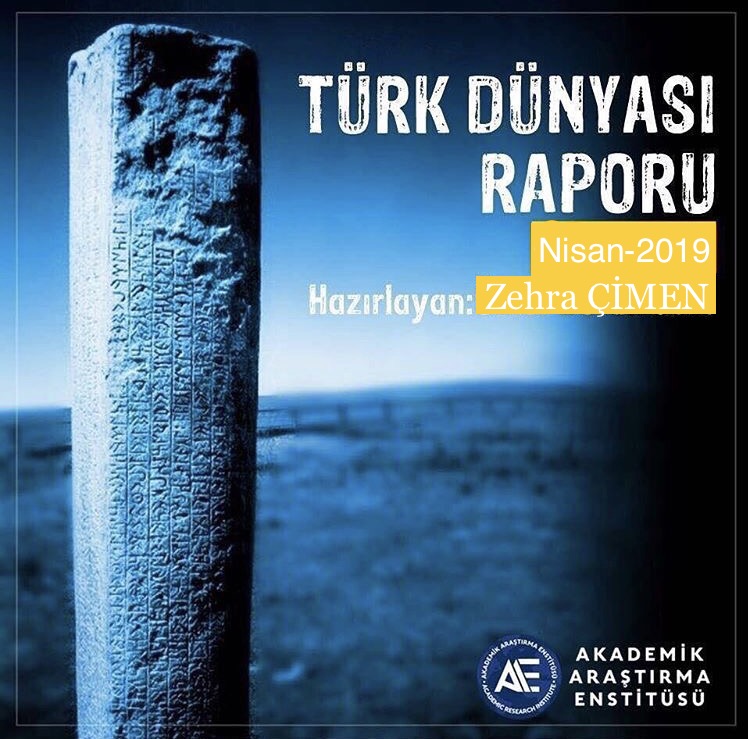
TÜRK DÜNYASI RAPORU-Nisan 2019
Bunları da beğenebilirsiniz

Savaş ve Barış
8 Nisan 2022
Erken Çocukluk Döneminde Kültürel Kimlik Oluşumunda Çizgi Filmler
28 Eylül 2023